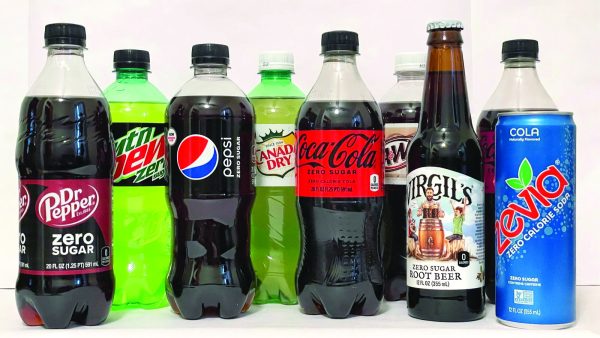Switching to zero sugar beverages will affect a person’s health negatively in the long run. Drinking any zero sugar beverages on a daily basis can lead to liver problems, neurochemicals in the brain and can damage cell membranes. Zero sugar beverages contain aspartame as a main ingredient, which is 200 to 700 times sweeter than regular sugar. Certain juices, such as Kool-Aid , can have up to 15 to 30 grams of sugar while zero sugar beverages have double the amount.
A study conducted by American Journal of Public Health found that obese individuals who had switched to zero sugar drinks consume more calories than the individuals who drink regular beverages. Even though someone is not obese, taking care of their health still matters
Zero sugar beverages may also increase the risk of getting Type 2 Diabetes by 38%, as proven by The National Institutes of Health. Many zero-sugar beverages contain Phosphoric Acid, which negatively impacts the gut microbiota and tooth enamel.

Gut microbiota eat non-digestible substrates, and if any of it gets damaged, it will cause inflammation and toxic damage to stomach linings. Sucralose is another ingredient found in zero sugar drinks that has been linked to damaging gut microbiota.
Given the many negative side effects of zero-sugar drinks, students should make smarter choices. Drinking healthier beverages, such matcha, smoothies or sparkling water, will allow Harvesters to get all of the energy of zero sugar drinks with little to none of the negative side effects. Green juices, which contain kale, cucumber, celery, apples and carrots, helps a body with improving the immune system, brain health and increasing energy.
Drinking water on a regular basis with electrolytes, such as Liquid IV or Buoy, will give energy in a healthier way. College students should be mindful and make healthy choices, including beverages, to set themselves up for success when it comes to well-being.







